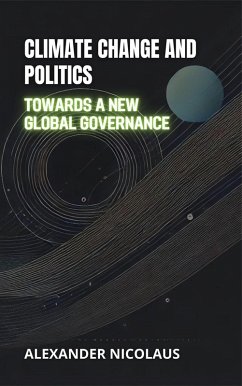The content is divided into six main chapters, starting with the historical recognition of climate change as a global crisis and moving on to the analysis of the complex dynamics of international cooperation and conflict. The book provides a detailed examination of national climate policies, highlighting their failures and successes, and delves into the economic impacts of the crisis, the transition to a green economy, and the critical role of multinational corporations.
Highlighting the importance of intergenerational justice, the work proposes a reformulation of climate policies to protect future generations and mitigate existing inequalities. In the conclusion, it presents innovative proposals for a new global climate governance, exploring technological solutions, nature-based approaches, and the vital role of social movements in promoting effective collective actions.
Aimed at researchers, academics, policymakers, and readers committed to the fight against climate change, this work is a vital contribution to understanding sustainability and the future of global governance. By combining rigorous theoretical analysis with practical case studies, it offers an in-depth and practical perspective to confront the greatest threat of our time.
Dieser Download kann aus rechtlichen Gründen nur mit Rechnungsadresse in A, B, CY, CZ, D, DK, EW, E, FIN, F, GR, H, IRL, I, LT, L, LR, M, NL, PL, P, R, S, SLO, SK ausgeliefert werden.









